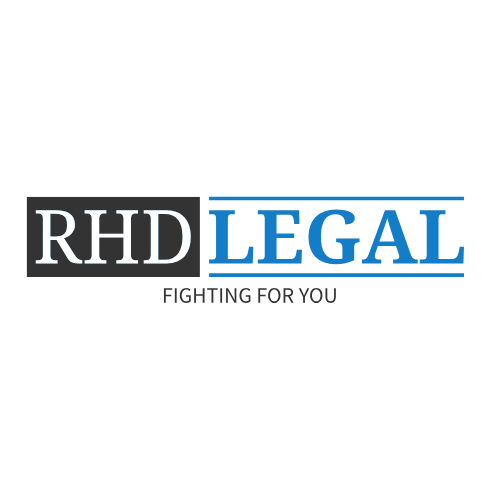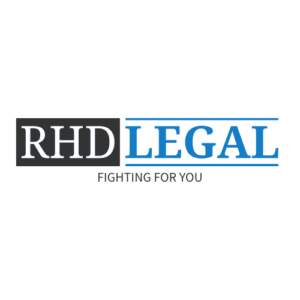Understanding State Employee Health Plan Liens in North Carolina Personal Injury Claims
Navigating personal injury claims in North Carolina can be overwhelming, particularly for state employees who are covered by the State Employee Health Plan (SEHP). If you are a state employee and have been injured in an accident, it’s critical to understand how SEHP liens can affect your case. If SEHP has paid for your medical treatment, they have a legal right to seek reimbursement from any settlement or judgment you may receive from the responsible party. Understanding the mechanics of these liens is essential to protecting your financial recovery.
This article will explain the concept of SEHP liens, how they impact your personal injury case, and provide you with important guidance on how to navigate them effectively. At RHD Legal, we have years of experience helping clients in North Carolina who face the challenge of SEHP liens and their personal injury claims. Our team is committed to ensuring that your rights are protected throughout the legal process.
What is an SEHP Lien?
A SEHP lien is a legal claim that the State Employee Health Plan (SEHP) holds to recover the costs it paid for your medical treatment after an accident. When you are injured and receive medical care for your injuries, your State Employees Health Plan may cover the costs of your treatment. Once they have made these payments, SEHP gains the right to be reimbursed from any settlement or award you receive in your personal injury case. This is commonly referred to as a “lien,” and it represents a portion of the proceeds that must be paid back to SEHP out of your recovery.
In simple terms, a lien ensures that SEHP is repaid for the money it has spent on your medical care when you recover damages from a third party (such as the individual or insurance company responsible for the accident). The lien is automatically triggered as soon as SEHP makes payments for your treatment, and it applies to any third-party recovery you obtain.
This distinction is crucial: SEHP liens only apply to third-party claims—those in which a responsible third party is at fault for the accident. This means that if you are pursuing a claim against someone else for your injuries, SEHP has the right to seek repayment from any settlement or judgment you receive from the responsible party. However, SEHP liens do not apply to first-party claims, such as those that involve your own insurance, workers’ compensation, or other types of personal injury claims where the fault is not placed on another third party. In other words, SEHP would not be entitled to seek reimbursement from Uninsured/Underinsured motorist coverage or MedPay, as they are often considered first party coverages.
How SEHP Liens Are Established
SEHP liens are unique in that they are automatically established when SEHP pays for medical treatment related to an accident. There is no need for a formal lien agreement or notification before the lien is placed. The lien attaches to any third party settlement or judgment you may receive as a result of your personal injury claim.
This means that once SEHP covers your medical expenses, the lien comes into effect, regardless of whether you were at fault for the injury or how your case unfolds. This automatic lien placement can be confusing for many people, but it is crucial to understand that SEHP has a right to seek reimbursement if they have provided you with medical coverage.
The SEHP lien only applies to third-party recovery. For example, if you are injured in an accident caused by someone else’s negligence—say, a car accident where another driver is at fault—SEHP can file a lien against your recovery from that responsible party. However, if you are pursuing a claim against your own insurance company (a first-party claim), or if your injury is covered under workers’ compensation, the SEHP lien will not apply.
This means if your personal injury case does not involve a third party and is resolved through your own insurance, SEHP cannot place a lien on your recovery, making the process smoother.
The Impact of SEHP Liens on Your Settlement
One of the most significant impacts of an SEHP lien on your case is that it reduces the amount of your settlement or judgment. When you settle your case or win a judgment in court, the SEHP lien must be satisfied first. This means that the amount SEHP claims will be deducted from your recovery before you receive any compensation.
For example, if your case settles for a total of $100,000 and SEHP has paid $30,000 for your medical treatment, then SEHP will be entitled to that $30,000. However, this lien is subject to certain restrictions. For instance, SEHP lien is capped at 50% of your net recovery. Net recovery refers to the amount left over after your attorney’s fees and any other legal costs have been deducted from the settlement or judgment. This is an important distinction, as it ensures that the SEHP lien does not take all or most of your recovery.
For example, if your total settlement is $100,000, and after attorney’s fees of 33% ($33,000) and additional legal expenses of $5,000, your net recovery is $62,000, the SEHP lien can only claim up to 50% of that amount—$31,000. This ensures that you retain a portion of your recovery for pain and suffering, lost wages, and other non-medical damages.
Negotiating SEHP Liens
While SEHP liens are legally mandated, it is often possible to negotiate a reduction in the lien amount. If you believe that the lien is excessive, or if the medical expenses paid by SEHP do not seem to be related to the accident, you can request an itemized statement and review the charges covered by SEHP. This review can reveal errors, discrepancies, or charges that were unrelated to the injury, which could potentially reduce the overall lien amount. SEHP can only seek reimbursement for those medical expenses that are related to the injuries sustained in the accident; therefore, a thorough review of the itemized lien is important to ensure SEHP is not seeking reimbursement for charges that are unrelated to a third party settlement or judgement.
In some cases, you may also be able to negotiate a reduction based on financial hardship or future medical needs. For instance, if your injuries are expected to require long-term care, you may be able to argue that the SEHP lien should be reduced to allow for these future costs.
Having an attorney with experience in handling these types of negotiations can make a significant difference in reducing the impact of the SEHP lien on your recovery. RHD Legal has extensive experience in negotiating with insurance companies, healthcare providers, and government entities like SEHP to ensure that our clients receive the compensation they deserve. Our team will thoroughly review your medical expenses, negotiate the lien amount, and fight for the best possible outcome in your case.
SEHP Liens vs. Federal Liens
In some personal injury cases, multiple liens may exist. For example, if you are also receiving Medicare or Medicaid benefits, those programs may place liens on your recovery as well. Federal programs like Medicare generally have priority over state programs, which means that if both SEHP and Medicare have liens, Medicare’s lien will usually be satisfied first.
This can complicate your case, as Medicare’s lien may consume a substantial portion of your recovery, leaving less for SEHP and other medical providers. If both state and federal liens are present, it is crucial to understand the order of lien priority and the implications this has on the distribution of settlement funds. Our team at RHD Legal is experienced in managing multiple liens and can help ensure that you are paying what you owe and no more. We will help prioritize liens and negotiate reductions where possible.
Medicaid Liens and SEHP Liens
When Medicaid and SEHP both place liens on your recovery, the process becomes even more complicated. Medicaid is generally more flexible than SEHP when it comes to lien negotiations, but Medicaid still has a legal right to seek reimbursement for medical expenses. In these situations, your attorney must carefully assess the total medical expenses covered by both programs and negotiate with each to ensure that the liens are as fair and manageable as possible.
While Medicaid may be more open to negotiating a reduced lien, SEHP generally maintains a stronger position due to its state-level legal authority. As such, Medicaid and SEHP must be carefully coordinated to ensure that each program receives its fair share of the recovery. RHD Legal is well-versed in these types of complex lien negotiations and will ensure that your financial interests are well-represented.
Physicians’ Liens and SEHP Liens
Another layer of complexity arises when physicians or medical providers who treated you for your injuries place their own liens on your personal injury recovery. These liens are typically secondary to SEHP liens, meaning that the SEHP lien is paid first, and any remaining recovery funds are available to satisfy the physicians’ liens.
If your medical expenses are extensive, you may be facing multiple medical liens, including those from SEHP and your treating physicians. In such cases, careful negotiation is necessary to ensure that each lien is handled appropriately. Our experienced attorneys can work with medical providers to negotiate down their liens, potentially reducing the amount owed and leaving more for you to retain.
How SEHP Liens Affect Your Case
The presence of an SEHP lien can significantly affect the outcome of your case. In addition to negotiating with insurance companies, proving liability, and calculating damages, you must also address the SEHP lien and its potential impact on your settlement. This can be particularly challenging if you are also dealing with liens from other entities, such as Medicare, Medicaid, or physicians.
At RHD Legal, we understand that the lien process is complex and can be confusing for injured individuals. Our team will work with you to ensure that you are aware of all liens placed on your recovery and that each is handled in a way that maximizes your financial compensation. We take care of the lien negotiations so that you can focus on healing and moving forward with your life.
Why You Need Legal Assistance with SEHP Liens
Handling a SEHP lien on your own can be overwhelming and may lead to missed opportunities for reducing the lien amount or addressing potential errors. With the help of an experienced personal injury attorney, you can ensure the SEHP lien is properly addressed and that you receive the full amount of compensation you are entitled to.
At RHD Legal, we are here to assist you throughout the entire personal injury process. Whether you are dealing with a car accident, slip-and-fall injury, or other personal injury claim, we will fight to protect your rights and maximize your recovery. If you have any questions about SEHP liens or your personal injury case, contact us today for a free consultation by either our online contact form or telephone at (919) 246-4001.



